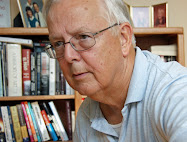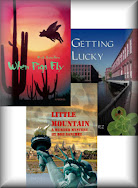 |
| Fire Island AFS in 1962 (Wikipedia) |
In February 1968, an Air Force helicopter ferried me across
Cook Inlet from Anchorage, Alaska, and dropped me off at nearby Fire Island Air
Force Station. My title was Air Surveillance Officer, with a duty to watch for
any Soviet Bison bombers that might attack from the north. We were part of
NORAD, the North American Air Defense Command, which expected ICBMs to be the
primary threat in case of World War III. The bombers would come after the
missiles.
Fire Island AFS was part of a ring of radar stations stretching
across North America and Greenland, designed to defend against such a doomsday.
The island is three miles wide by six miles long and is surrounded by the
world’s second-highest tides after the Bay of Fundy. Moose commute to and from
the mainland at low tide, when they can muck their way across mud flats.
We saw no Bisons in 1968, the Cold War staying mercifully cold.
But we often saw moose, which coexisted peacefully with the island’s humans. On
a summer walk one day, I came face-to-shoulder blade with one of them. It had
enormous fuzzy antlers, and brown eyes that gazed at me from a couple of feet
away, perhaps wondering whether to walk over me or around me. While it chewed
its cud, I stood stock-still, hoping to convey that I was a trifling biped
unworthy of its attention. After a couple of minutes it ambled into the woods.
For anyone stationed at one of these remote outposts, the
basic reality was boredom. One day I slept for 17 hours. In the Officers’
Lounge, drinking was the number one activity. Officers had an ongoing game
called Dead Bug. The person who was “it” waited until the lounge was crowded,
then called out “Dead Bug!” Everyone had to fall on the floor, and the last one
to do so had to buy a round of drinks. Then he got to call “Dead Bug!” the next
time. A few of us hated the game, but the commanding officer mandated that we
either play or stay out of the lounge—and in winter, there was nowhere else to
go.
But the boredom was punctuated by several frightening events
and by news from the outside world. One day, I heard a loud explosion. A woman
piloting a small plane had tried to land on the narrow beach on one end of the
island. Her struts caught a power line, and her plane flipped over and
exploded. The next day I saw the ghastly scene: the airframe mangled and
burned, shattered glass, a dried-up lake of blood that stank like death.
The outside world seemed no better. Martin Luther King and
Robert Kennedy were murdered that year. The Democratic Convention in Chicago
turned grotesque and violent. LBJ had lost control of the Vietnam War and
announced he would not run for re-election. Richard Nixon announced “a secret plan to end
the war.” In Vietnam, American infantry were calling in air strikes when their
positions were being overrun the enemy forces. I read a Life magazine article
reporting on a visit by General Westmoreland to his combat squad after a
battle. The gist of one passage was this:
Westmoreland: “Did you
kill any of them, soldier?”
Soldier: “Yes sir, I killed
one.”
Westmoreland: “How do
you know he was dead?”
Soldier: “My bullets
cut him in half, sir.”
Westmoreland: “Good.”
Westmoreland: “Good.”
In the winter, the days were short. With two fellow officers
on a three-day pass, we rented a car on the mainland to explore the beautiful
fjord called Turnagain Arm. We stopped at frozen Portage Lake at the base of the
Chugach Mountains. At the far end, perhaps a mile away, sat a glacier where two
mountains met. Temperatures had been minus 20 degrees Fahrenheit for at least
three days, and we guessed the ice to be a foot thick. Wearing arctic clothing
that included heavy white “bunny boots,” we decided to walk across the ice, to
see the glacier up close. As we walked, we saw ice floes frozen in place, the
sunlight scattering through them in the full rainbow spectrum. Beneath our feet,
the ice seemed to capture a million tiny air bubbles above the black depths. We
had heard that the lake had been carved by the glacier to a depth of 800 feet.
 |
| Portage Lake (photo by johnlofgreen.blogspot.com) |
We turned around, hoping to find secure footing. We agreed
that one of us would lead, and the other two would follow in his boot prints. I
went first. But then our boot prints filling up with water. We turned around,
and I was last. It looked too unsafe to step in their slushy boot prints, so I decided
to find my own way. I took a couple of steps, and a large puddle formed all
around me. In seconds, the ice gave way, and I was chest-deep in water. I tried
to pull myself out, but I couldn’t. The ice was too slippery, and my soaked
clothing felt as though it weighed a ton. I called to my friends, who came back
to help me. One of them alone couldn’t pull me out, and he risked falling
through the ice himself. So the two men lay flat on the ice and eased me to
safety. On the long walk back to the car, warm water sloshed in my bunny boots,
which were rated for minus 40 degrees. But ice coated my jacket and pants. My
friends both helped me walk back, concentrating our weight and causing more
cracking and groaning of the ice. Still, they stayed with me all the way.
By then I was becoming a short-timer, due in a couple of
months for discharge. One of our comrades on the station was a US Army
lieutenant from California named Murphy—I forget his first name, but we all
called him Murph the Surf. His main base was nearby Fort Richardson. I chatted
with him in his room just before he returned to his base. A few days later, the
Anchorage radio station broadcast the news that a military plane had crashed in
the Aleutian Islands. Lieutenant Murphy’s boss was supposed to be on that
plane, but he had a cold, and Murphy went instead. The airplane disintegrated
in mid-air and landed in pieces in minus 60-degree temperatures. Everyone died.
My departure from the island and the Air Force went
smoothly. I mustered out at McChord Air Force Base in Seattle, where I received
my final pay: over $2000 in twenty-dollar bills. The wad of cash made me
nervous, but I made it home to New England in good shape.
Postscript: Fire Island Air Force Station was decommissioned in September 1969, less than a year after my discharge. Wikipedia states that by 2005, civil engineers had "remediated" the island--returned it to nature--and nearly all traces of the station's presence have disappeared.



















